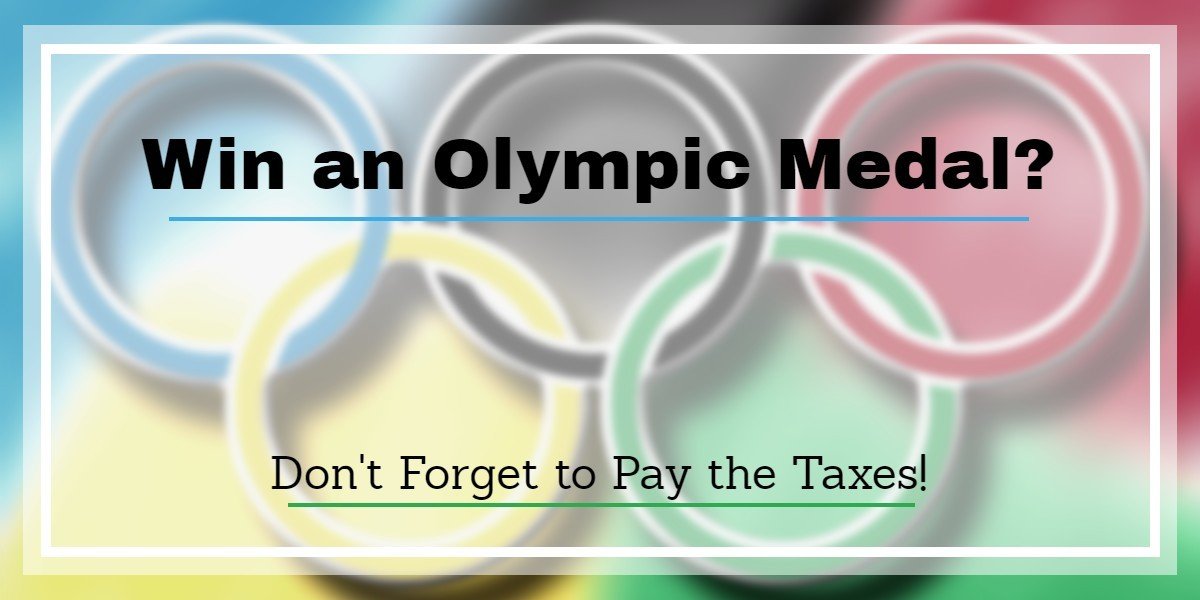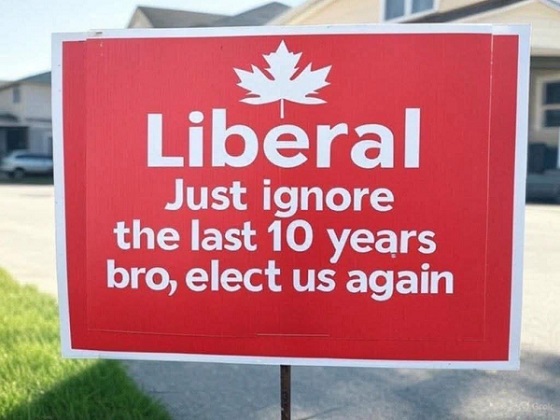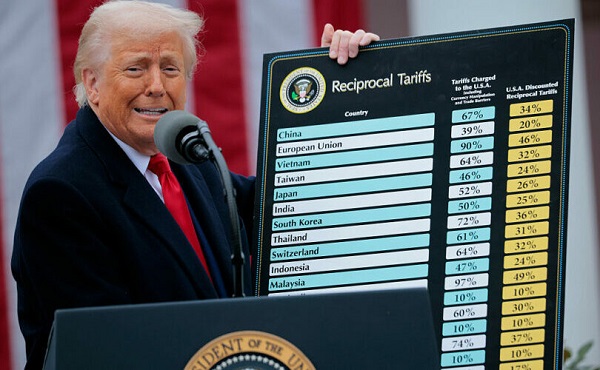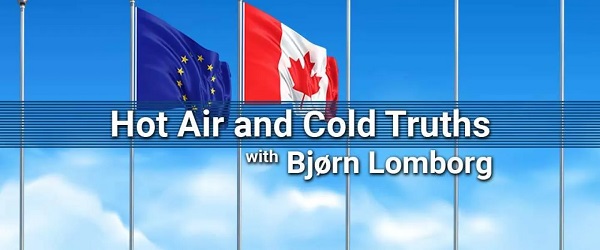Bruce Dowbiggin
Winning Olympic Medals A Taxing Experience

There’s an old British racing expression that says what you lose on the swings you make up on the roundabouts. That’s also the attitude off predatory governments around the world as they see the spoils athletes are enjoying and want an undeserved piece of the action.
The Olympics are a prime target. Athletes who win a gold medal will receive US$37,500, while a silver medal will provide US$22,500 and a bronze medal US$15,000. In addition, World Athletics, the international governing body for athletics, has pledged to award $50,000 to gold medalists in track and field events, with relay teams splitting the money. Plus bonus money under personal contracts are also targeted.
As reported by Sportico, “Under a U.S-France tax treaty, “artistes and sportsmen”—a classification that covers Olympic athletes—are exempt from paying French taxes on up to $10,000 or its equivalent in Euros for services performed while in France. After $10,000, those earnings are taxable.
A $15,000 with-holding tax is being used by France on visiting athletes during the Games. (Athletes typically do get a credit in their home tax jurisdiction versus any deductions made outside their home area.)

Gold, silver and bronze medals all carry prizes that exceed $10,000, and the amounts exceeding the $10,000 threshold will be subject to French taxes. Those taxes generally range from 11 percent to 45 percent depending on the level of earnings. A leading expert on French tax law told Sportico that U.S athletes must “declare all French source income” and will be subject to a “15% withholding [that] is offset against personal income tax due.”
The French are hardly unique. For some time now municipal, state, provincial and federal governments have docked athletes for the amounts of their contracts paid for time spent in their jurisdictions. These so-called “jock taxes” deduct a figure proportionate to their salary relative to the number of days they do business in a jurisdiction.
When Canadian NHL teams were suffering from a low dollar in the early 2000s provincial governments introduced the tactic. Combined with the Canadian Assistance Program, this kept Canada from losing more than just Winnipeg and Quebec City to American markets. While not universally employed jock taxes are used in many places where the highest-grossing athletes play.
Naturally, athletes and their agents are looking to fight back against the encroachment of the tax man. (Ever notice that no one complains about making the term more inclusive? Tax Woman?) One of the ways they are doing this as salaries zoom to $50 million a year for more is to minimize their tax hit by heading to a state or province with a more conservative tax regime.
As we point out in our book Deal With It: The Trades that Shook The NHL & Changed Hockey, the 2022 defection of Matthew Tkachuk and Johnny Gaudreau from Calgary to American markets illustrated the peril faced by Canadian teams playing within a high-tax regime. Both players had expiring contracts— Gaudreau’s in 2022, Tkachuk’s in 2023. While Calgary was willing to meet their market value, they could not equal the after-tax packages both wanted.

Tkachuk, in particular, used the threat of walking away from Calgary to force a trade to Florida, a state with no state income tax. The Flames ended up trading him in a deal to the Panthers who made two Stanley Cup Finals— winning the Cup this year. The defection of Tkachuk and Gaudreau (to Columbus) gutted the Flames who are now re-tooling with younger players who are years from being able to use the NHL’s draconian salary cap to force a move.
There are five states with NHL teams that have a no-state-tax regime (Florida, Texas, Tennessee, Nevada, Washington). That makes them highly attractive to a player seeking to maximize his top contract. (Warm weather and anonymity away from the rink are also big draws.) The inequity is particularly punitive for Canadian teams which all function in very high tax regimes.
Leading some to demand the NHL tweak its salary cap to mitigate against tax breaks. As Eric Duhatschek writes in The Athletic, “The problem is that while there’s a lot of grumbling about the advantages that teams such as Florida and Tampa Bay may have, there isn’t a lot of belief that the system is about to change. For one thing, a change of this magnitude would have to be collectively bargained, and so the default position of the league is, if we need to address this at all, we’ll address it in 2026 when we need to go back to the bargaining table with the players’ association.”
Duhatschek points out that it takes more than low taxes to lure prime players. One executive told him, “His point was that Florida, Tampa Bay and Vegas all did something far better than any other team and that was why they won. Not because of the state tax codes. Tampa Bay found value in Nikita Kucherov, Brayden Point, Ondrej Palat, Alex Killorn as players chosen deeper in the draft.
“Florida found gold on the NHL scrap heap: Carter Verhaeghe, Gustav Forsling, Oliver-Ekman Larsson. Sam Bennett came for a second-rounder and a prospect. Brandon Montour was practically a giveaway too (third-round pick). Sam Reinhart provided great value (2022 first-rounder, plus goalie prospect Devon Levi). And trading the No. 2 overall scorer in the 2021-22 season (Jonathan Huberdeau) as part of a package for Matthew Tkachuk took enormous guts by GM Bill Zito.”
It’s not just Americans wanting to avoid Canadian taxes. One agent privately admitted that Canadians would be shocked to know bow many Canadians have high-tax Canadian market on their no-trade-to list. So we might soon be saying that the only assurances in a hockey life are death, taxes and the power of the U.S. market.
Bruce Dowbiggin @dowbboy is the editor of Not The Public Broadcaster A two-time winner of the Gemini Award as Canada’s top television sports broadcaster, he’s a regular contributor to Sirius XM Canada Talks Ch. 167. His new book Deal With It: The Trades That Stunned The NHL And Changed hockey is now available on Amazon. Inexact Science: The Six Most Compelling Draft Years In NHL History, his previous book with his son Evan, was voted the seventh-best professional hockey book of all time by bookauthority.org . His 2004 book Money Players was voted sixth best on the same list, and is available via brucedowbigginbooks.ca.
Bruce Dowbiggin
Bettman Gives Rogers Keys To The Empire. Nothing Will Change

Good news if you like the way Rogers Sportsnet covers hockey in Canada. You’re about to get a whole lot more of it. In a move that sums up Gary Bettman’s unique broadcast philosophy the NHL has awarded the Canadian TV/ digital/ streaming rights to Rogers for the next 12 years. The price tag? 12 billion U.S. dollars (about $16.B CDN dollars).
While the pattern in modern sports broadcasting rights has been toward sharing the wealth among competing bidders— the NFL has six distinct partners— Bettman the contrarian has opted for a different notion. He’s all in with one Canadian partner, and let his critics STFU.
As opposed to the previous CDN national monopoly awarded to Rogers in 2013 this one bestows national rights in all languages across TV, streaming and digital for all regular-season and playoff games, plus the Stanley Cup Final and all special events. This extends to coverage in all regions. There are some concessions for Rogers to sell limited cutout packages, such as the Monday Night Amazon package they’ve created.
Presuming Pierre Poliievre doesn’t get his way with CBC, Rogers will likely piggyback on their time-sharing agreement for Saturday Hockey Night In Canada to get CBC’s network reach. (There remain many hockey fans who still think CBC has the NHL contract. Go figure.)
Translation: there will be no regional packages for TSN to produce Montreal Canadiens, Ottawa Senators or Toronto Maple Leafs games, for instance. But there will be regional blackouts, because nothing says we are proud of our product like denying it to a larger audience. Conn Smythe would be proud.
At the presser to announce the deal Rogers and Bettman were coy about how much they will charge consumers for the honour of being inundated by content in what now seems likely to be a 36-team league by the time the deal expires. Will costs be added to cable/ satellite packages? How much for streaming? With stories circulating that Rogers massively overbid for the package to get the monopoly it’s apparent that the phone company will be turning over every nickel to make it worthwhile.
Fans are apprehensive and over-saturated with hockey content already. For that reason, the NHL is now desperately looking for ways to lessen the tedium of the 82-game regular schedule with midseason content like the 4 Nations Cup or a World Cup format. In Canada’s hockey-mad environment Rogers will have a passionate market, but even the most fervent fans will only spend so much for their fix.
Already, Rogers is trumpeting its re-acquisition with commercials featuring Ron Maclean doing his breathy feels-like-home voice about how Sportsnet is the natural landing spot for hockey until many of us are dead. Bettman made cooing noises about Rogers’ commitment at the announcement.
But let us cast our minds back to 2013 when the last Rogers/ NHL deal was concocted. We were the sports media columnist at the Mop & Pail at the time and much was made that Rogers would be a technological marvel, re-inventing the way we watched hockey. There would be new camera angles, referee cams, heightened audio, refreshed editorial content etc.

As hockey fans now know Rogers dabbled in the brave new world briefly, blanched at the cost of being creative and largely went back to doing hockey the way it had always been done. Taking no risks. On some regional casts that meant as few as three or four cameras for the action.
But if you were expecting dashboard cameras and drone shots you were sadly disappointed. Similarly there was a brief stab at refreshing the pre-, mid- and postgame content. Hipster George Stromboulopoulos was brought in as a host to attract a larger female audience.
But pretty soon Strombo was gonzo, replaced by the anodyne David Amber (whose dad was once the leader of the journalist union at CBC). Women like former player Jennifer Botterill were brought in to change the gender balance on panels. They then acted pretty much like guys, chalk-talking viewers into numbness. Appointment viewing has become a fallback choice.
The move away for anything controversial came in 2019 with Rogers’ axing of Don Cherry’s Coach’s Corner in a flap over the former coach’s continuing ventures into political or cultural content. Maclean slipped the knife into his meal ticket and continued on the show. After time in limbo, doing location shoots, he was returned full-time to the desk.

As we wrote in June of 2022, the one exception to the standard “serious, sombre, even a touch grim” tone is former defenceman Kevin Bieksa. “Bieksa has been a moveable feast. His insouciance with media has become his ragging on the fellow panelists during intermissions that used to be as much fun as skating in July.” His banter with “insider” Elliotte Friedman is now a lone concession to wit on the show.
Intermissions are numbingly predictable, and Rogers’ stable of analysts and play-by-play announcers outside of HNIC is unchallenging to the orthodoxy of PxP being a radio call over TV pictures. Name one star beside Bieksa that has been produced by Rogers’ “safe” broadcast style since 2013. They’d fit in perfectly in a 1980s hockey broadcast. Now compare it with the lively Amazon broadcasts hosted by Adnan Virk and Andi Petrillo.
This leaves a lingering question. What happens to TSN? Many prefer the editorial and studio profile of TSN on Trade Deadline Day or Free Agent frenzy. TSN locked up its stars such as James Duthie and Bob McKenzie when the last deal was signed. But there isn’t enough live content this time to support keeping a full roster anymore. Who will stay and who will go? (TSN’s president Stewart Johnson is the new commissioner of the CFL).
And with Rogers taking full control of MLSE (Maple Leafs, Raptors, Argos, Toronto FC) TSN is left with the CFL and packages of NFL, golf, tennis, some auto racing and international soccer. Is that enough on which to float a network? There have been rumours that Bell, owner of TSN, is interested in divesting itself of the high cost of sports broadcasting. Should that happen— who has the money to replace them?— the effect will be seismic in Canadian broadcasting.
For now, watch how much pressure the NHL puts on Rogers to up its game. More importantly what will happen when Bettman finally retires and the league has a new vision since 1992? Rogers has sewn up its end. Will the audience go with them?
Bruce Dowbiggin @dowbboy is the editor of Not The Public Broadcaster A two-time winner of the Gemini Award as Canada’s top television sports broadcaster, his new book Deal With It: The Trades That Stunned The NHL And Changed hockey is now available on Amazon. Inexact Science: The Six Most Compelling Draft Years In NHL History, his previous book with his son Evan, was voted the seventh-best professional hockey book of all time by bookauthority.org . His 2004 book Money Players was voted sixth best on the same list, and is available via brucedowbigginbooks.ca.
2025 Federal Election
Will Four More Years Of Liberals Prove The West’s Tipping Point?

The 1997 political comedy Wag The Dog featured a ruling president far behind in the polls engaging Hollywood to rescue his failing ratings. By inventing a fake war against Albania and a left-behind “hero”— nicknamed Shoe— the Hollywood producer creates a narrative that sweeps the nation.
The meme of hanging old shoes from the branches of trees and power lines catches on and re-elects the president. In a plot kicker, the vain producer is killed by the president’s handlers when he refuses to stay quiet about his handiwork. The movie’s cynicism over political spin made it a big hit in the Bill Clinton/ Monica Lewinsky days.

In the recent 2024 election the Democrats thought they’d resurrect the WTD formula to spin off senile Joe Biden at the last minute in favour of Kamala Harris. Americans saw through the obvious charade and installed Donald Trump instead.
You’d think that would be enough to dissuade Canadians who pride themselves on their hip, postmodern humour. But you’d be wrong, they don’t get the joke. Wag The Carney is the current political theatre as Liberals bury the reviled Justin Trudeau and pivot to Mark Carney. If you believe the polling it might just be working on a public besotted by ex-pat Mike Myers and “Canada’s Not For Sale”.
As opposed to Wag The Dog, few are laughing about this performative theatre, however. There are still two debates (English/ French) and over three more weeks of campaign where anything— hello Paul Chiang—can happen. But with Laurentian media bribed by the Libs— Carney is threatening those who stray— people are already projecting what another four years of Liberals in office will mean.
As the most prominent outlier to Team Canada’s “we will fight them on the beaches…” Alberta’s premier Danielle Smith is already steering a course for her province that doesn’t include going to war with America on energy. She asked Trump to delay his tariffs until Canadians had a chance to speak on the subject in an election April 28. Naturally the howler monkeys of the Left accused her of treason. She got her wish Wednesday when Canada was spared any new tariffs for the time being.

Clearly, she (and Saskatchewan premier Scott Moe) have no illusions about Carney not using their energy industry as a whipping post for his EU climate schemes. They’ve seen the cynical flip in polls as former Trudeau loyalists hurry back to the same Liberal party they abandoned in 2024. They know Carney can manipulate the Boomer demographic just as he did when he called for draconian financial methods against the peaceful Truckers Convoy in 2022.
Former Reform leader Preston Manning is unequivocal: “’Large numbers of Westerners simply will not stand for another four years of Liberal government, no matter who leads it.’“ So how does the West respond within Confederation to protect itself from a predatory Ottawa elite?
Clearly, the emissions cap— part of Carney’s radical environmental plans— will keep Alberta’s treasure in the ground. With Carney repeating no cancellation of Bill C-69 that precludes building pipelines in the future, the momentum for a referendum in Alberta will only grow. The NDP will howl, but there will be enough push among from the rest of Albertans for a new approach within Canada.
In this vein Smith even wants to approach Quebec. While it seems like odd bedfellows the two provinces most at odds with the status quo have much in common . “This is an area where our two provinces may be able to coordinate an approach,” Smith wrote this week. That could include referendums by the middle of 2026.
Perhaps the best recipe for keeping the increasingly fractious union together is a devolution of power, not unlike that governing the United Kingdom. While Westminster remains the central power since 1997, there are now separate parliaments in Scotland, Wales and Northern Ireland that put power closer to the citizen, so that local factors are better recognized in decision making.
With so little uniting the regions of the country any longer, devolution might provide a solution. What form could decentralization take within Canada? A Western Canada Parliament could blunt predatory federal energy policies while countering the imbalances of Canada’s equalization process. Similar parliaments representing Quebec, the Atlantic provinces, Ontario and B.C. would protect their own special interests within Canada. Ottawa could handle Canada’s international obligations to defence, trade and international cooperation.
While the idea is fraught with pitfalls it nonetheless remains preferable to a breakup of the nation, which four more years of Liberals rule under Mark Carney and the same Trudeau characters will likely precipitate. Smith’s outreach case would be the beginning of such a process.
None of this would be necessary were the populations of Eastern Canada and B.C.’s lower mainland remotely serious after snoozing through the Trudeau decade. The OECD shows Canada’s 1.4% GDP barely ahead of Luxembourg and behind the rest of the industrialized world from 2015-2025. As we’ve said before the Boomers sitting on their $1 million-plus homes are re-staging Woodstock on the Canada Pension and OAS. As with Wag The Dog, they’re not getting the joke.

When the Boomers award themselves another four years of taxapalooza and Mike Myers and the other “Canada Not For For Sale” celebs head south to their tax-avoidance schemes how will the Boomers say they’ve left Canada better off for anyone under 60? We’ll hang up and listen to your answer on the TV.
Bruce Dowbiggin @dowbboy is the editor of Not The Public Broadcaster A two-time winner of the Gemini Award as Canada’s top television sports broadcaster, his new book Deal With It: The Trades That Stunned The NHL And Changed hockey is now available on Amazon. Inexact Science: The Six Most Compelling Draft Years In NHL History, his previous book with his son Evan, was voted the seventh-best professional hockey book of all time by bookauthority.org . His 2004 book Money Players was voted sixth best on the same list, and is available via brucedowbigginbooks.ca.
-

 2025 Federal Election2 days ago
2025 Federal Election2 days agoWATCH: Massive Crowd for Historic Edmonton Poilievre Rally
-

 2025 Federal Election17 hours ago
2025 Federal Election17 hours agoConservative Party urges investigation into Carney plan to spend $1 billion on heat pumps
-

 2025 Federal Election2 days ago
2025 Federal Election2 days agoAn In-Depth Campaign Trail “Interview” With Pierre Poilievre
-

 2025 Federal Election2 days ago
2025 Federal Election2 days agoHarper Endorses Poilievre at Historic Edmonton Rally: “This Crisis Was Made in Canada”
-

 Business2 days ago
Business2 days agoTrump’s tariff plan replaces free trade with balanced trade. Globalists hate that.
-

 2025 Federal Election16 hours ago
2025 Federal Election16 hours agoFifty Shades of Mark Carney
-

 2025 Federal Election17 hours ago
2025 Federal Election17 hours agoCorporate Media Isn’t Reporting on Foreign Interference—It’s Covering for It
-

 2025 Federal Election2 days ago
2025 Federal Election2 days agoDon’t double-down on net zero again





